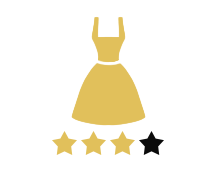Chat0yant wrote:
Hello! Discussion time? (maybe)
So, for a (relatively) chill philosophical discussion, I thought of the topic of revenge.
Pls keep it chill and kind, no name calling or such, just discussing and questions (call me out if I'm ever not polite also!!)
possible Tw: murder (R rated movie), morality

So!
It started when I watched the movie "The Crow" with my friend at my cousins house.
[plot synopsis briefly, this guy and his girlfriend are brutally mudered by a gang and then the guy resurrects (I forget how) to brutally murder all of the gang]
And afterwards, I commented something about it being dark and violent (not that it wasn't a good movie--it was ok I think, i liked the gn better), and my cousin's roommate was like "he and his wife were brutally mudered, wouldn't you want to muder the culprits if that happened?" (or something to that extent, it was a little while ago)
And I'm just thinking "No? I might feel like doing something like that for a little while but i don't want to be the kind of person that makes myself feel better by hurting other people... I would hope I could be better?"
Or like the pop song on the radio that's like a verse and a half about "i hope you have a great life and find a new love" culminating in the chorus "so then they can cheat on you and ruin your life like you did to me" (also not exact words)
So like, revenge is not only glorified, but normalized in tons of pop songs and movies
I did a report in public speaking relating to the quote "holding a grudge is like drinking poison and expecting the other person to die" (idk who wrote it, google gave me like 5 people)
Like holding a grudge and the stress thereby can physically, emotionally, and mentally harm you, but do people care nowadays?
Like being mad at someone and being tempted to do bad things in return can feel right at the time, but I can't imagine it will really satisfy you...and honestly making yourself "happy" by hurting someone else sounds a little...sociopathic?
Thoughts?

So, for a (relatively) chill philosophical discussion, I thought of the topic of revenge.
Pls keep it chill and kind, no name calling or such, just discussing and questions (call me out if I'm ever not polite also!!)
possible Tw: murder (R rated movie), morality

So!
It started when I watched the movie "The Crow" with my friend at my cousins house.
[plot synopsis briefly, this guy and his girlfriend are brutally mudered by a gang and then the guy resurrects (I forget how) to brutally murder all of the gang]
And afterwards, I commented something about it being dark and violent (not that it wasn't a good movie--it was ok I think, i liked the gn better), and my cousin's roommate was like "he and his wife were brutally mudered, wouldn't you want to muder the culprits if that happened?" (or something to that extent, it was a little while ago)
And I'm just thinking "No? I might feel like doing something like that for a little while but i don't want to be the kind of person that makes myself feel better by hurting other people... I would hope I could be better?"
Or like the pop song on the radio that's like a verse and a half about "i hope you have a great life and find a new love" culminating in the chorus "so then they can cheat on you and ruin your life like you did to me" (also not exact words)
So like, revenge is not only glorified, but normalized in tons of pop songs and movies
I did a report in public speaking relating to the quote "holding a grudge is like drinking poison and expecting the other person to die" (idk who wrote it, google gave me like 5 people)
Like holding a grudge and the stress thereby can physically, emotionally, and mentally harm you, but do people care nowadays?
Like being mad at someone and being tempted to do bad things in return can feel right at the time, but I can't imagine it will really satisfy you...and honestly making yourself "happy" by hurting someone else sounds a little...sociopathic?
Thoughts?




 0
0 0
0 0
0 0
0 To join the forums you need to be logged in.
To join the forums you need to be logged in.














 20
20



 that relatively fits in with that 12 paragraph discourse from above, but if you're ever feeling like elaborating, i'll be here!
that relatively fits in with that 12 paragraph discourse from above, but if you're ever feeling like elaborating, i'll be here! 